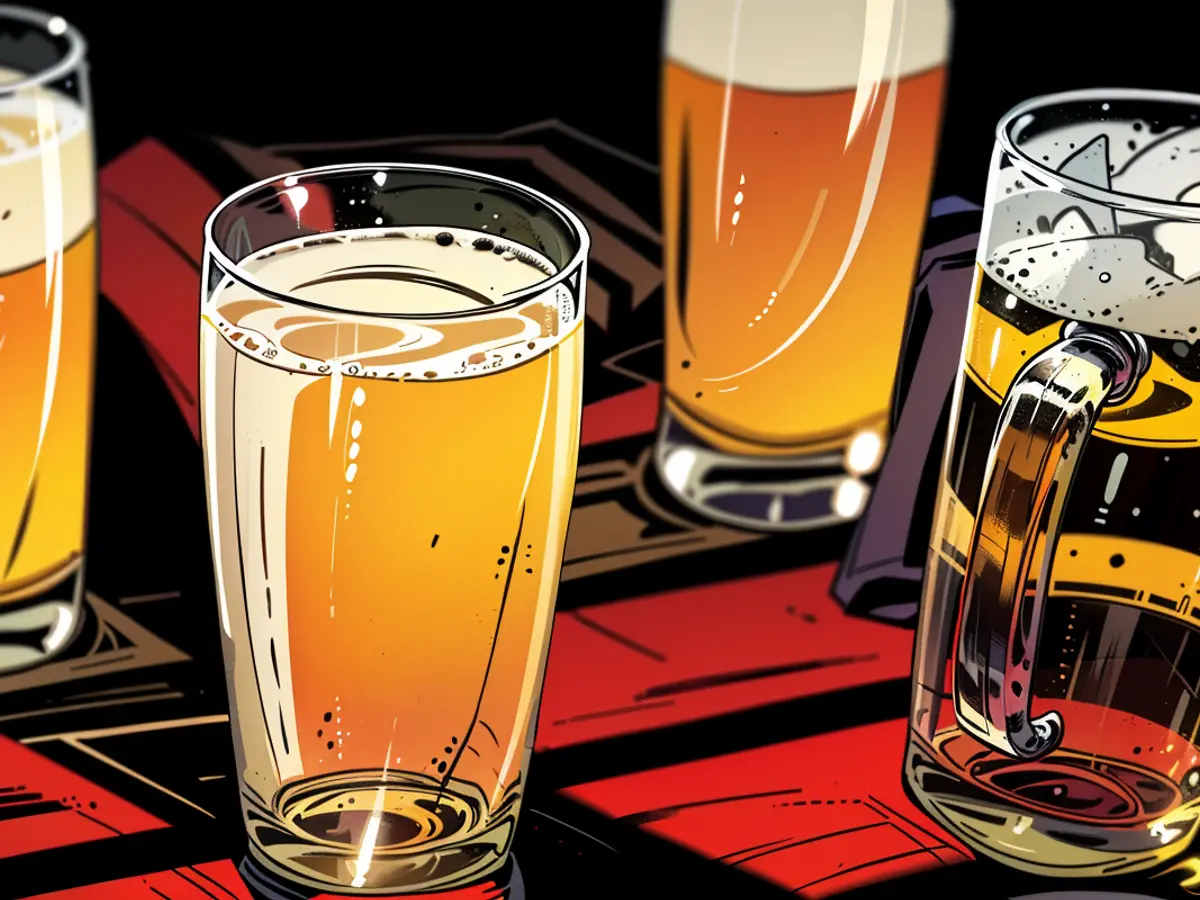- The drug authority official declares:
For minors, the Federal Drug Czar believes alcohol should be off-limits. "Alcohol consumption should only be permitted once you turn 18, once you reach adulthood," stated the Drug and Addiction Czar of the Federal Government, Burkhard Blienert (SPD), in the "Rheinische Post" based in Düsseldorf. He firmly reiterated a long-standing demand.
At present, the Youth Protection Act allows teenagers to consume alcoholic drinks like beer or wine in public as long as they're accompanied by an adult guardian. "I can't say anything good about drinking in the company of an adult at 14 years old," Blienert stated, further adding, "Alcohol is a toxic substance that takes effect from the initial sip. (...) There's no such thing as safe alcohol consumption. Alcohol has a significant impact on teenagers who are still developing physically.**
The age of 14 for drinking is under scrutiny
The Council of Health Ministers of the States dealt with this matter in June and agreed to examine the Youth Protection Act's regulations more closely by November. Germany's Federal Health Minister, Karl Lauterbach (SPD), also advocated for prohibiting so-called "accompanied drinking" for individuals aged 14 to 16.
"I think it's fantastic that all the State Health Ministers are now at least discussing a strict 'from the age of 16.' Pushing for this debate has proven valuable," said Blienert to the "Rheinische Post."
DEG: Alcohol, even in moderate amounts, is unhealthy
Just a few weeks ago, the German Nutrition Society (DEG) advised against drinking alcohol and thus revised its earlier stance. Even in moderation, alcohol is not beneficial to health - there is no safe and health-promoting quantity of alcohol for responsible consumption, the expert organization declared in a position paper released in mid-August. "Alcohol is a psychoactive substance" that has been linked to over 200 negative health consequences, including diseases and accidents, it noted.
If one still chooses to drink alcohol, it's crucial to avoid large quantities, the expert organization suggested. This recommendation is especially pertinent for young people. Children, teenagers, pregnant women, and nursing mothers should refrain from consuming alcohol altogether. Alcohol consumption is associated with developmental disorders in unborn children, accidents, injuries, violence, and "psychosocial disadvantages for people who drink alcohol, as well as their social environment," the organization wrote.
"Health policy, the healthcare system, and relevant societal actors must do more to decrease overall alcohol consumption and the consequences associated with it for consumers, their social environment, and society," it also stated in a position paper released in June by the German Office for Addiction Issues (DHS), the German Medical Association (BAK), the German Psychotherapists' Association (BPtK), the German Society for Psychiatry and Psychotherapy, Psychosomatics and Neurology (DGPPN), and the German Society for Addiction Research and Therapy.
Researchers from the University of Victoria, Canada, have discovered that some previous studies suggesting health benefits from moderate alcohol consumption were due to biases originating from study design flaws. They analyzed 107 long-term studies on the relationship between alcohol consumption and mortality. Previous research had consistently suggested that light drinkers were less susceptible to certain diseases compared to abstainers.
The Commission, following the Council of Health Ministers' suggestion, may adopt implementing acts to reinforce the age limit for 'accompanied drinking,' as per Article 113. Directly addressing the issue, Blienert expressed his hope that the discussion on a strict 'from the age of 16' will result in beneficial changes in alcohol consumption policies.






